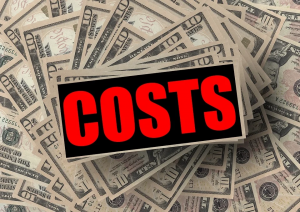 There is talk and concern about inflation increasing across the country in recent months and weeks. So, let’s take a few minutes to take some deep breaths, calm down and think about what we can do to prepare and “weather the storm.”
There is talk and concern about inflation increasing across the country in recent months and weeks. So, let’s take a few minutes to take some deep breaths, calm down and think about what we can do to prepare and “weather the storm.”
What is inflation?
Inflation is an increase in prices for goods and services. The consumer price index rose 4.2% in the 12 months of last year April to April. Therefore, the most obvious effect of inflation is increases in the cost of living. For example, the more prices go up, the more you spend each year on your overall expenses such as housing, food, health care…everything.
Inflation – is it bad or good?
Both! It may provide opportunities for wages and salaries to increase in a tight labor market. However, not everyone sees their income increase; nor do the increases in costs and income come at the same time or pace. So, it often catches people feeling a pinch on their wallets and budgets if prices increase faster than wages.
Just think about the price of gasoline. It has increased over 33% in the last year. Rising transportation and energy costs increases the price of most products and services we buy. For example, airline tickets rose over 10% from March to April of this year. Inflation affects low-income and fixed-income people the most. In other words, the more prices go up the less each dollar can buy.
Steps to Protect against Inflation
Saving and Investing 
- Keep adding to an Emergency Fund. To be prepared for the unexpected, build and maintain a fund with six to nine months’ worth of expenses.
- Continue to save and invest for retirement. Historically, the stock market (where most 401k and other retirement accounts are vested) outperforms inflation in the long term. If you have the capacity to diversify, some experts recommend investing in hard assets like metals, energy, land and real estate. These assets generally maintain or increase value over time.
Reducing Debt
- Review debt balances. Rising interest rates can have a huge impact on debt. While interest rates are still low, review your highest-rate debt balances. Concentrate on paying off the highest rate balances first while making minimum payments on all debt. Find opportunities to refinance or consolidate into fixed-rate loans.
Spending
- Limit your wants. Don’t spend money on things you don’t need. Create a budget and stick to it to give you more capacity to adjust to rising costs. Track your expenses using a budgeting app or pencil and paper; and cut or change any poor spending habits.
- Budget tightening. Some items are fixed expenses, meaning they cost the same month to month, such as rent or mortgage payments and insurance premiums. There are several flexible categories like food, clothing, gifts, leisure activities, etc. where you have control to adjust to your current circumstances.
- Plan meals using food items you already have. Then make your grocery shopping list for items you need to buy. This eliminates buying items you already have on hand.
- Shop sales and learn the sale cycles so you can buy at the lowest possible price.
- Buy in bulk when the price is low and you can use or store the items.
- Use coupons and reward programs for items you normally buy and need.
- Stop or limit buying snack-sized or individual serving items. Make your own snack bags to save food dollars.
- Meat (proteins are often the highest cost food items) – look for the best deals, whether it is beef, chicken, pork, turkey and fish. Also compare the price of frozen or canned options.
- Consider alternative protein sources such as dried beans, eggs, lentils, etc.
- Fruits and Vegetables. Buy fresh seasonal fruits and vegetables at their lowest prices. Compare prices with frozen and canned.
- Eat out less often and order water to drink. Another option is to split meals with a family member, friend or ask for a to-go box for leftovers.
Investing in Yourself
- Invest in yourself and be the best at what you do. Consider learning new skills through online resources or a local college to increase your value to employers and customers. This helps maintain your marketability and employability, and your capacity to support yourself and your lifestyle.


Hello Gisele, I will be taking the advice you shared in this article to make sure that I am doing the best to protect myself. Thanks!